Ruth Bader Ginsburg: Opera's Advocate
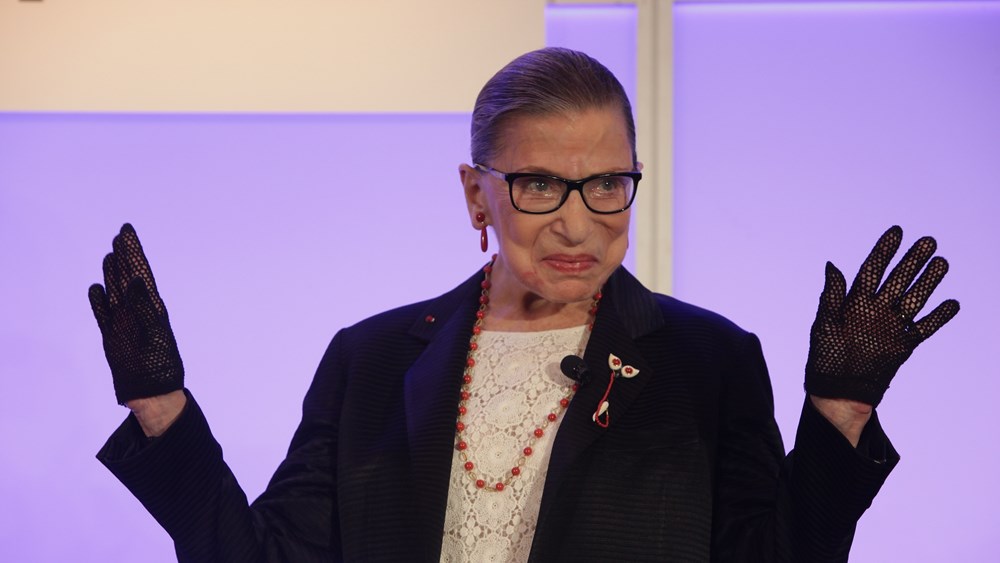
Ruth Bader Ginsburg was inarguably the nation’s most prominent opera fan. Audiences at Washington National Opera, Wolf Trap Opera, Santa Fe Opera, and the Glimmerglass Festival grew accustomed to finding her in their midst. At WNO, she even became a performer: joining her friend and Supreme Court antagonist Antonin Scalia as a supernumerary in Ariadne auf Naxos, and in 2016, taking on the comic speaking role of the Duchess of Krakenthorp in La fille du régiment.
“There was no greater advocate for opera than Ruth Bader Ginsburg,” says Marc A. Scorca, president/CEO or OPERA America. “Her unalloyed love for the art form and the kind, generous spirit she displayed toward the staff, artists, and audiences at our companies will forever be remembered.” (Justice Ginsburg, who presided over quite a few opera-world weddings, married Scorca and his husband, Joe Alvarez, in 2017.)
Ginsburg traced her love of opera back to age 11, when she was taken to a condensed opera for young people organized by the conductor Dean Dixon. “The opera was La Gioconda, not the most likely choice for a first opera,” wrote Ginsburg in a 2015 essay for Opera America Magazine. “But for me, it was an overwhelming experience. High drama conveyed through glorious music — I was spellbound.” Derrick Wang’s 2015 opera Scalia/Ginsburg dramatized the court clashes between Ginsburg and Scalia: two ideological antipodes who found common ground in a love of opera. The work had its 2017 premiere at the Glimmerglass Festival, where Ginsburg and her family would travel each year during the court’s summer recess, before heading to Santa Fe. At Glimmerglass, she also delivered immensely popular talks that used performances from young artists to draw connections between opera and the law.
In 2015, Ginsburg electrified attendees at the annual Opera Conference, in Washington, D.C., when she took the stage to discuss her long-abiding passion for the art form. It was there that Michael Egel, general and artistic director of Des Moines Metro Opera, heard her speak about moral and legal issues in Billy Budd, prompting him to invite her to DMMO’s 2017 production of the opera. She was unable to attend, but she initiated a correspondence that lasted until a month before her death.
“Any time I sent her a letter, I’d get a response within two or three weeks,” says Egel. “She commented on our broadcast of Joyce Castle in Bon Appétit!, and when she noticed that we were using singers who had been young artists at WNO — like John Holiday in Flight — she’d land on that. I sent her DVDs of Billy Budd, but they kept getting erased by the court scanner. So she gave me her home address! She seriously wanted to see the production.”
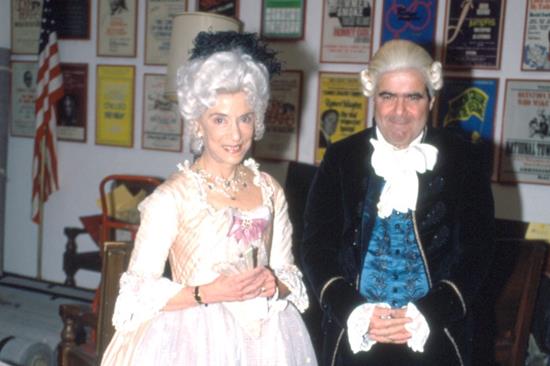
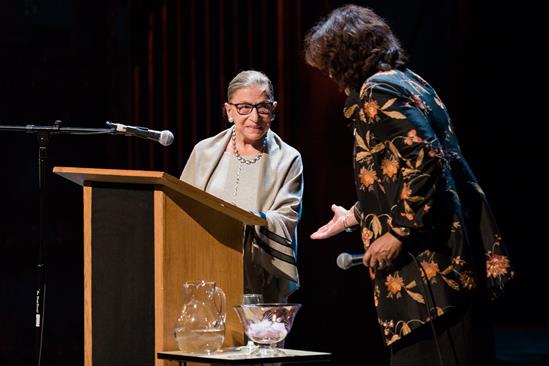
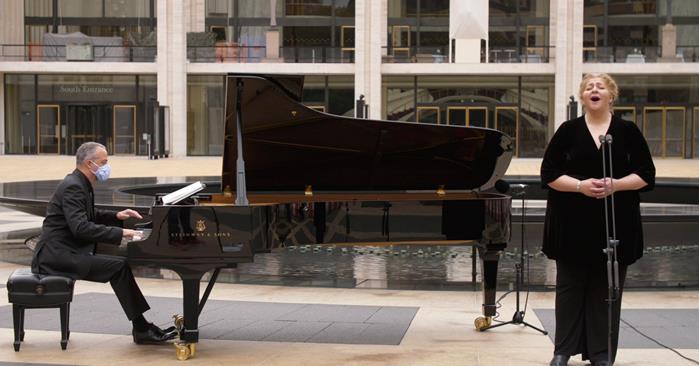
No opera administrator was closer to Ginsburg than Francesca Zambello, artistic director of WNO and general and artistic director of Glimmerglass. Their friendship dated back to 2003, when Zambello, then a freelance director, staged Fidelio at WNO, and Ginsburg wrote her a letter discussing the production. “We became friends,” Zambello says. “We’d exchange emails and I’d visit every dress rehearsal and opening night. She’d come backstage, and
the world’s greatest singers would be struck dumb in her presence — they’d become tongue-tied.”
Ginsburg sponsored performances by WNO’s young artists in the Supreme Court chambers, including a recent one-act version of Menotti’s immigration-themed The Consul. “When Alexandria Shiner sang ‘Papers! Papers!’ in ‘To this we’ve come,’ she looked Justice Kavanaugh right between the eyes,” says Zambello. “RBG loved it!
“I don’t know of anybody who has generated so much enthusiasm for our art form,” Zambello says. “She was a rock star for opera.”
Tazewell Thompson on Justice Ginsburg
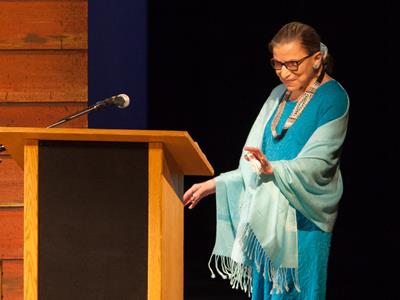
Ginsburg Memories
A personal reminiscence from director/librettist Tazewell Thompson
This article was published in the Fall 2020 issue of Opera America Magazine.





